第12章
Every mechanical invention which lessens the necessity for rough, untrained, muscular, human labour, diminishes also the social demand upon woman as the producer in large masses of such labourers.Already throughout the modern civilised world we have reached a point at which the social demand is not merely for human creatures in the bulk for use as beasts of burden, but, rather, and only, for such human creatures as shall be so trained and cultured as to be fitted for the performance of the more complex duties of modern life.Not, now, merely for many men, but, rather, for few men, and those few, well born and well instructed, is the modern demand.And the woman who today merely produces twelve children and suckles them, and then turns them loose on her society and family, is regarded, and rightly so, as a curse and down draught, and not the productive labourer, of her community.Indeed, so difficult and expensive has become in the modern world the rearing and training of even one individual, in a manner suited to fit it for coping with the complexities and difficulties of civilised life, that, to the family as well as to the state, unlimited fecundity on the part of the female has already, in most cases, become irremediable evil; whether it be in the case of the artisan, who at the cost of immense self-sacrifice must support and train his children till their twelfth or fourteenth year, if they are ever to become even skilled manual labourers, and who if his family be large often sinks beneath the burden, allowing his offspring, untaught and untrained, to become waste products of human life; or, in that of the professional man, who by his mental toil is compelled to support and educate, at immense expense, his sons till they are twenty or older, and to sustain his daughters, often throughout their whole lives should they not marry, and to whom a large family proves often no less disastrous; while the state whose women produce recklessly large masses of individuals in excess of those for whom they can provide instruction and nourishment is a state, in so far, tending toward deterioration.The commandment to the modern woman is now not simply "Thou shalt bear," but rather, "Thou shalt not bear in excess of thy power to rear and train satisfactorily;" and the woman who should today appear at the door of a workhouse or the tribunal of the poor-law guardians followed by her twelve infants, demanding honourable sustenance for them and herself in return for the labour she had undergone in producing them, would meet with but short shrift.And the modern man who on his wedding-day should be greeted with the ancient good wish, that he might become the father of twenty sons and twenty daughters, would regard it as a malediction rather than a blessing.It is certain that the time is now rapidly approaching when child-bearing will be regarded rather as a lofty privilege, permissible only to those who have shown their power rightly to train and provide for their offspring, than a labour which in itself, and under whatever conditions performed, is beneficial to society.(The difference between the primitive and modern view on this matter is aptly and quaintly illustrated by two incidents.Seeing a certain Bantu woman who appeared better cared for, less hard worked, and happier than the mass of her companions, we made inquiry, and found that she had two impotent brothers; because of this she herself had not married, but had borne by different men fourteen children, all of whom when grown she had given to her brothers."They are fond of me because I have given them so many children, therefore I have not to work like the other women; and my brothers give me plenty of mealies and milk," she replied, complacently, when questioned, "and our family will not die out." And this person, whose conduct was so emphatically anti-social on all sides when viewed from the modern standpoint, was evidently regarded as pre-eminently of value to her family and to society because of her mere fecundity.On the other hand, a few weeks back appeared an account in the London papers of an individual who, taken up at the East End for some brutal offence, blubbered out in court that she was the mother of twenty children."You should be ashamed of yourself!" responded the magistrate; "a woman capable of such conduct would be capable of doing anything!" and the fine was remorselessly inflicted.Undoubtedly, if somewhat brutally, the magistrate yet gave true voice to the modern view on the subject of excessive and reckless child-bearing.)Further, owing partly to the diminished demand for child-bearing, rising from the extreme difficulty and expense of rearing and education, and to many other complex social causes, to which we shall return later, millions of women in our modern societies are so placed as to be absolutely compelled to go through life not merely childless, but without sex relationship in any form whatever; while another mighty army of women is reduced by the dislocations of our civilisation to accepting sexual relationships which practically negate child-bearing, and whose only product is physical and moral disease.